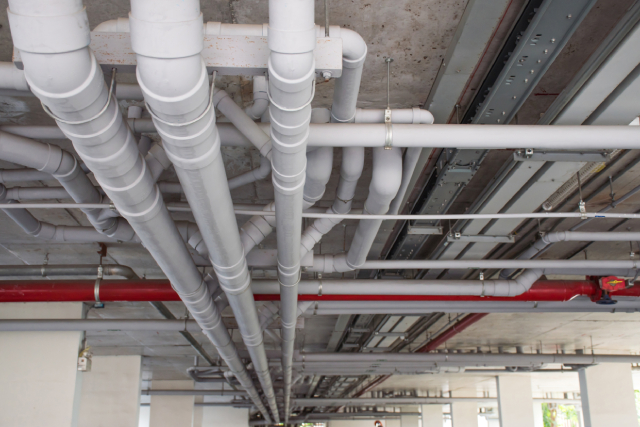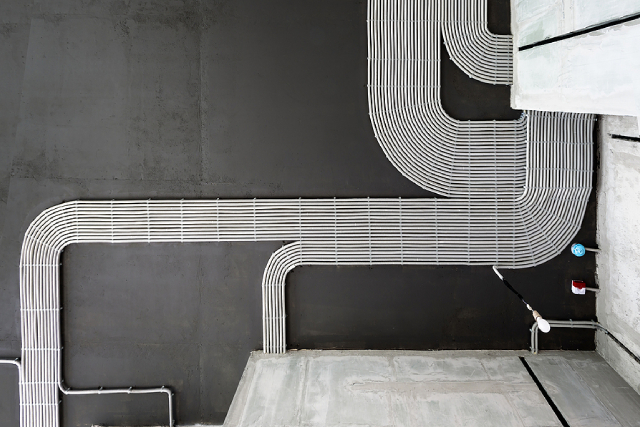
19 Apr UPVC for Plumbing vs Electrical Conduits: How the Two Differ
Unplasticized polyvinyl chloride, or uPVC, is a highly popular material made from the combination of plastic in vinyl to create all sorts of strong and rigid parts, notably pipes, doors, windows, and so on. These pipes find use in various applications, the two most popular being underground drainage systems and electrical conduits.
But while plumbing uPVC and electrical conduit uPVC are created from the same plastic material, that does not mean they are equal in every aspect, nor should they be used interchangeably. Each should only be used for the purposes they were designed for to avoid suboptimal performance or more severe consequences. Read on to learn more about the main differences between these two types of uPVC construction materials.
1. Wall Thickness
A key difference between uPVC pipes and conduits is in their dimensions, specifically their wall thickness.
Since uPVC plumbing pipes are used in applications with pressure considerations, they are typically designed with much thicker walls for added strength and higher resistance to bending. This allows them to remain intact and undamaged for the length of their service life under normal operations.
On the other hand, uPVC conduits do not need to withstand much pressure, if at all, hence why they have thinner walls, which is more cost-effective for manufacturers.
2. Pressure Testing
As mentioned in the previous section, plumbing uPVC pipes must withstand a certain degree of pressure depending on the particular system they are designed for. Hence, they undergo rigorous pressure testing to ensure designs are effective, leak-free, and work properly.
A plumbing pipe’s pressure rating can be located somewhere on its surface. UPVC electrical conduits do not undergo pressure tests, making them at high risk of easily leaking and are thus not approved for any type of plumbing application.
3. Weatherproofing
Plumbing uPVC pipes are generally used for underground or indoor systems, hence why most products are not rated for ultraviolet (UV) light exposure and are unsuitable for applications where they will be exposed to the weather. However, some uPVC products, like doors and windows, are specifically designed to be UV resistant.
In contrast, uPVC electrical conduits are tested and rated for UV exposure. They are a great choice for outdoor waterproof electrical systems where wiring and cables must run up the side of structures or across rooftops.
4. Colour
The most noticeable difference between plumbing and electrical uPVC pipes is their colour; the standard colour for plumbing pipes is white, while electrical conduits are grey. That said, some manufacturers add chemical additives in their manufacturing process to make pipes with different colours.

Conclusion
Most of the differences above indicate that although uPVC plumbing pipes and uPVC electrical conduits have some things in common, they are unsuitable for each other’s applications since they are designed for different purposes.
UPVC pipes should only be used for their specific plumbing situations, be it for potable water transfer, sewage waste drainage, rainwater downpipes, and so on, and where they match the expected pressure thresholds and weather conditions.
Meanwhile, uPVC electrical conduits are exclusively used for electrical systems as housing for electrical wires or cables underground or in outdoor locations where they can withstand being exposed to the elements.
If you’re looking for sustainable yet high-performance uPVC piping solutions for electrical installations, plumbing projects, and many other applications, Vicplas is here to help. We offer a comprehensive selection of sustainable, lead-free pipes ranging from hydroponic channels and gutters to soil waste and vent pipes such as SS141 uPVC pipes, all with unbeatable performance.
To learn more about our plumbing solutions and components for hydroponic systems in Singapore, contact us today for additional details.
